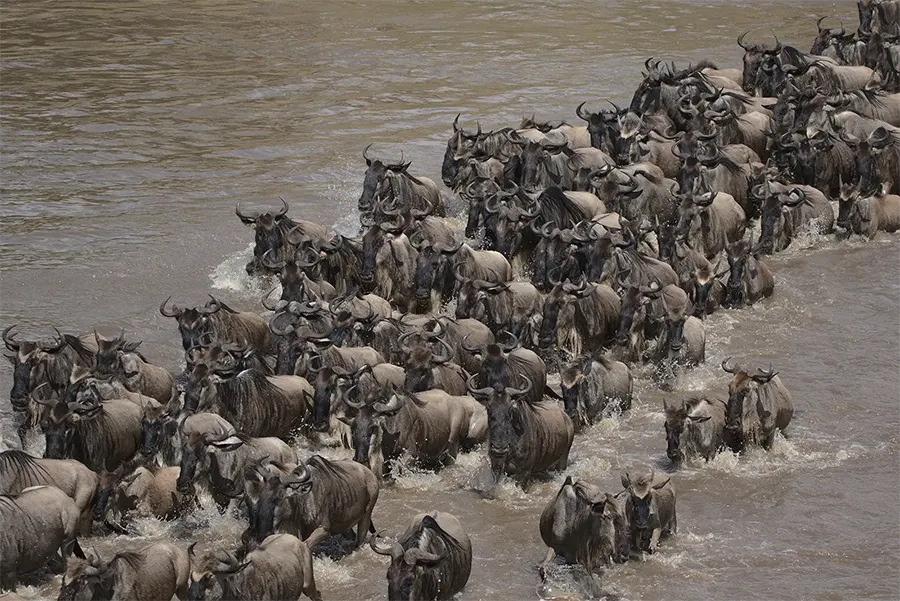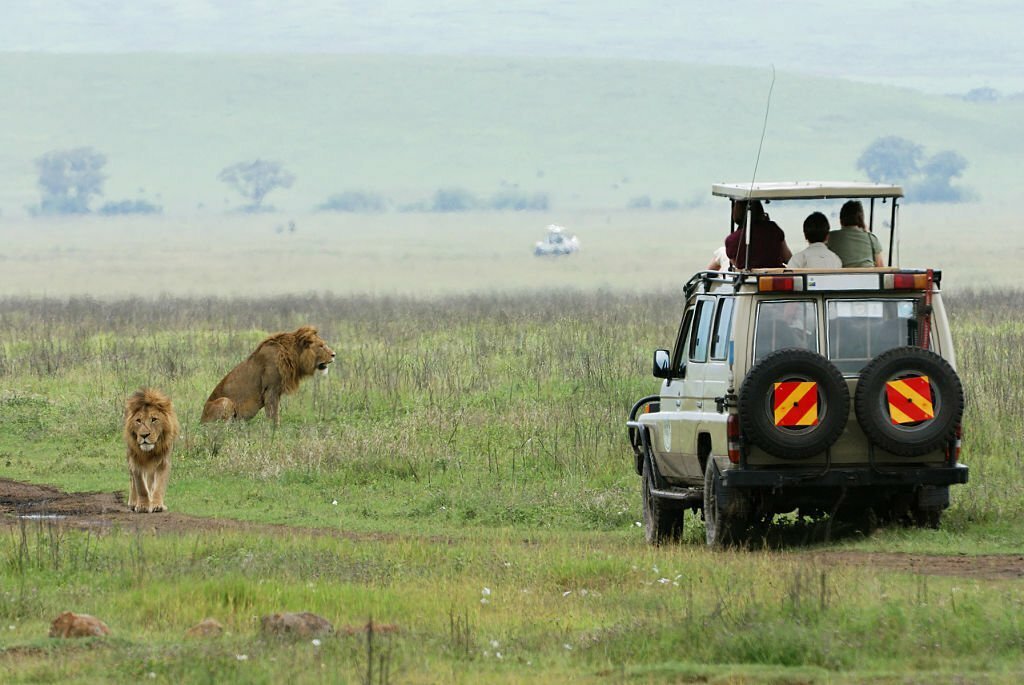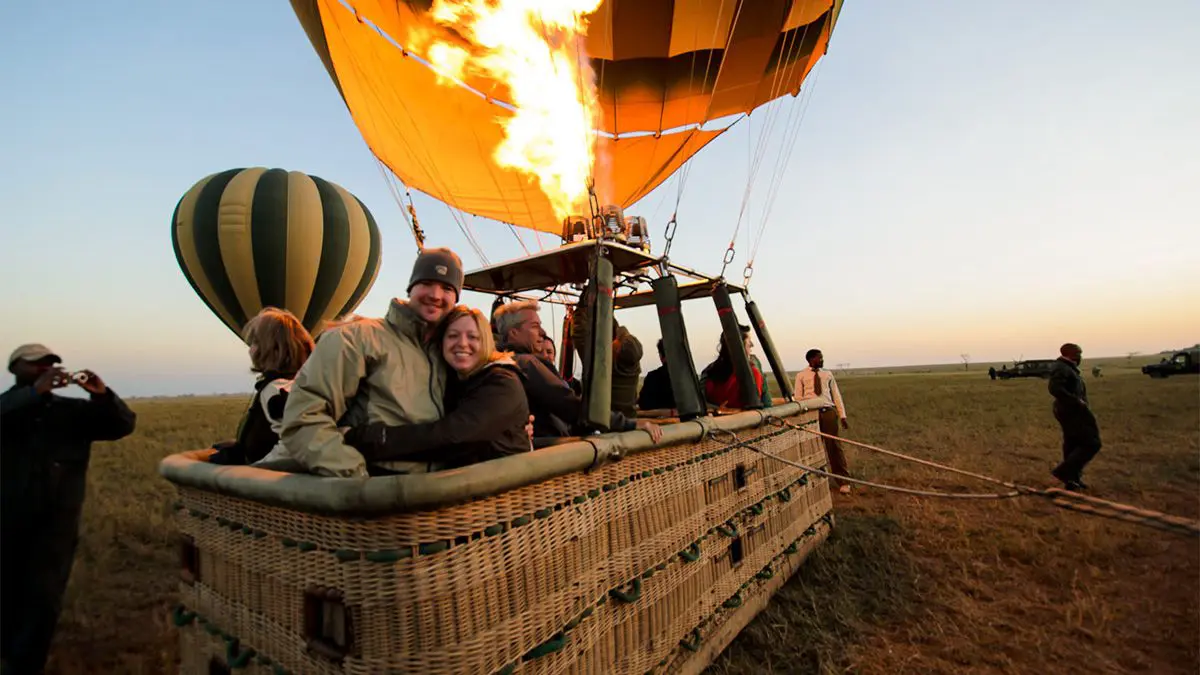Nestled in the heart of Tanzania, the Serengeti National Park is a UNESCO World Heritage site that boasts an unparalleled display of wildlife and natural beauty. Spanning over 14,750 square kilometers, it offers a pristine landscape that has captivated adventurers, photographers, and conservationists for decades. The Serengeti is the epitome of African wildlife, offering a sanctuary to the largest terrestrial mammal migration in the world, and is a must-visit for anyone looking to experience the raw essence of the continent.

The Serengeti National Park was established in 1951, preserving centuries of natural history and evolution. Its name, derived from the Maasai language, ‘Siringet’, translates to ‘the place where the land runs on forever’, encapsulating the endless plains that characterize the region. The park’s ecosystem is one of the oldest on earth, providing a unique and intricate environment that supports a vast array of flora and fauna.
The park is most famous for the Great Migration, an awe-inspiring spectacle where over two million wildebeest, zebras, and gazelles traverse its plains in search of fresh grazing. This annual journey is a powerful testament to the laws of nature and survival.

Beyond the migration, the Serengeti is home to the Big Five (lion, leopard, rhinoceros, elephant, and Cape buffalo), offering unparalleled safari experiences. Its diverse habitats, from savannahs to riverine forests, are teeming with wildlife, including over 500 bird species.

The Serengeti’s landscapes are as varied as they are majestic. From the iconic kopjes, ancient granite formations that dot the plains, to the acacia-lined rivers, the park offers breathtaking views and a sense of timeless wonder


Experience the thrill of a game drive, witnessing the raw beauty of the Serengeti. Whether you're here for the Great Migration or to spot the elusive leopard, safaris are tailored to offer an unforgettable adventure.

Soar above the Serengeti for a bird's-eye view of its vastness. A hot air balloon ride at dawn offers a serene and picturesque experience of the park's landscapes and wildlife.

Embark on a guided walk to explore the park's flora and fauna up close, or visit local Maasai communities to learn about their rich cultural heritage and symbiotic relationship with the land.
The Serengeti is a year-round destination, but the best wildlife viewing is during the dry season from June to October. For those wishing to witness the Great Migration, the timing depends on rainfall patterns, but it typically peaks between May and July.
| Month | Jan | Feb | Mar | Apr | May | Jun | Jul | Aug | Sept | Oct | Nov | Dec |
|---|---|---|---|---|---|---|---|---|---|---|---|---|
| Event |
Located in northern Tanzania, the Serengeti is accessible by road or air. The nearest airports are Kilimanjaro International Airport (KIA) and Arusha Airport, with charter flights available to various airstrips within the park.
From luxury lodges to mobile camps, the Serengeti offers a range of accommodations to suit every taste and budget. Staying within the park allows for early morning game drives and the chance to experience the wild at your doorstep.
Visitors are required to pay entrance fees, which contribute to conservation efforts. It's essential to respect park regulations to ensure the safety of wildlife and the preservation of their habitats.
The Serengeti National Park is at the forefront of wildlife conservation, undertaking initiatives to protect its species and ecosystems. Tourists play a vital role in supporting these efforts through park fees and ethical tourism practices.

The best time for wildlife viewing in Serengeti National Park is during the dry season from June to October. For those looking to witness the Great Migration, it peaks between May and July, although this can vary based on rainfall.
The park is accessible by road or air. The nearest international airports are Kilimanjaro International Airport (KIA) and Arusha Airport, with scheduled and charter flights available to various airstrips within the park.
There are a variety of accommodations ranging from luxury lodges to mobile camps and public campsites. Whether you're looking for a touch of luxury or a more immersive bush experience, there's something to suit every preference and budget.
Most visitors to Tanzania require a visa, which can be obtained upon arrival or in advance through the Tanzanian Embassy or Consulate in your country. Check the latest visa requirements and exemptions before your trip.
The Serengeti is renowned for its large predator population, including lions, leopards, and cheetahs, as well as the Great Migration of wildebeest, zebras, and gazelles. Elephants, giraffes, hippos, and a vast array of bird species are also commonly seen.
It's advisable to consult with a travel health specialist for vaccinations and health advice. Malaria prophylaxis is recommended for all travelers to Tanzania, and you should ensure your routine vaccinations are up to date.
Park fees vary depending on your nationality, the duration of your visit, and your mode of transportation. These fees contribute to the conservation of the park and support local communities. Check the official Tanzania National Parks website for the latest fee structure.
The Serengeti National Park is a testament to the wonders of the natural world, offering an unparalleled wildlife experience and the beauty of unspoiled landscapes. Its majestic plains and rich biodiversity beckon travelers from around the globe, promising an adventure of a lifetime. Prepare to be captivated by the heart of the wild, where every visit leaves a lasting impression and a deep respect for nature’s marvels.
Explore unparalleled adventures with Sahara Destinations: climb mountains, safari, and beach. Captivating landscapes, vibrant cultures—your extraordinary journey awaits!